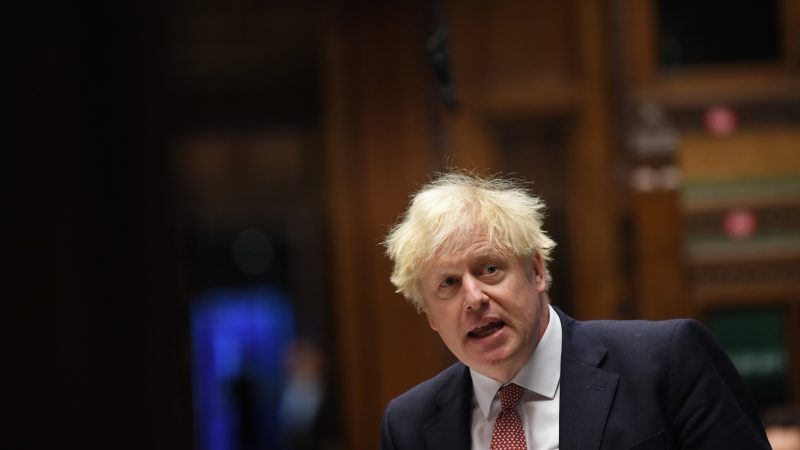
Boris Johnson’s priority as Prime Minister, beyond his desire to ‘get Brexit done’, is his ‘levelling up agenda’. Both phrases are similar in their sloppy syntax and attempts to portray simplicity in fiendishly complex policy areas. Brexit is done to the extent that a trade deal now needs negotiating, upon which Britain will have a generational challenge to rebuild its global relationships. To ‘level up’ Britain has, in different ways, been the mission of every Prime Minister since the turn of the 19th century. It is a phrase that each could have adopted, but most governments had more ideological substance than this Johnson administration. Transformative Prime Ministers have real policy programmes.
For example, Clement Attlee built the welfare state to ‘level up’ the most vulnerable, having seen the horrors of poverty in Stepney. Margaret Thatcher privatised large swathes of the public realm and cut taxes in the misguided hope of empowering the many – to ‘level up’ those she felt were frustrated by an all-encompassing state. Tony Blair wanted to invest in and modernise public services to ensure they were the best in the world and to ‘level up’ opportunities for all. Even Theresa May, in her speech on becoming Prime Minister, displayed more depth and understanding before the chaos of Brexit swept her away.
For Johnson, ‘levelling up’ is merely a slogan in search of a policy. Dominic Cummings, the apparent brain behind the government, is dreaming about civil service reform and building space agencies – ideas far removed from peoples’ lives. The rest of the cabinet are largely powerless, given office for their loyalty to the Brexit cause or Johnson’s own political ambitions.
Where there is an intellectual vacuum, different Tory tribes attempt to fill it. Danny Kruger MP, a man who must hold the record for most policy pamphlets written without delivering any particular policies, has written (yet another) report about how civil society holds the key to ‘levelling up’, wholly echoing David Cameron’s vacuous ‘Big Society’. The ‘Blue Wall’ MPs have set up a ‘Levelling Up Taskforce’, which is pretty empty with regard to policy, but suggests the answer lies in huge spending in R&D and infrastructure away from London and the South East and into ‘left behind’ Northern towns. It remains to be seen how the Conservatives will pay for this considering the current state of the public finances and their wariness of redistributive economic policies.
For all the chatter amongst different Tory groups about ‘levelling up’, their commitment to tackling regional inequality and investing in people and places that need it most does not align with any of their recent policies. Most famously, over the summer the Department of Education allowed an algorithm they knew would discriminate against successful students from poorer areas to adjudicate on examination results (before U-turning under pressure). It took a campaign from footballer Marcus Rashford to force the government to reconsider its decision to scrap free school meals during the pandemic. The recent publication of reforms to the planning system was met with widespread scepticism, with experts warning that it would benefit the south-east of England most (the area that needs such investment the least). Even in the midst of the pandemic, research shows that the poorest areas of England are four times as likely to face lockdown as the richest following the disastrous attempt to set up a functioning test and trace system.
More recently, as explained by Torsten Bell of the Resolution foundation, Rishi Sunak pledged to cut benefits on a much bigger scale than even George Osborne in 2015. The numbers suggest the poorest fifth of the population will lose 7% of their disposable incomes. The plans will mean that one in three households in the ‘Red Wall’ will lost around £1,000 per year as a result of this announcement. Bell has also expertly explained why Sunak’s new job support scheme is designed to protect the stable and more well-paid employees, but cut adrift the precarious and low-paid work, whose jobs Sunak deems “unviable”. Where in the country unemployment occurs during the incipient recession, and for whom, is unlikely to reflect any notion of ‘levelling up’.
This should come as no surprise from a Conservative government. Labour must not let the Tories forget the recent past. As Giles Wilkes, a former special adviser in the coalition government, tweeted, “I saw that local authority income is down 60% since 2010. With all the chatter about levelling up, I’m constantly surprised the whole conversation isn’t dominated by that fact.” He’s right. The cuts implemented over a decade of Tory rule have devastated many parts of the country. This must be the starting point for any discussion on levelling up, after years of the Conservatives smashing the country down.
Ultimately, however, the opportunity for (and duty of) Labour is to build a substantive policy programme, with a narrative for change, that people trust and believe in. This government will begin to fight amongst itself, because there is no coherent intellectual framework beyond a hard-Brexit obsession. Whilst they do so, let Labour’s work begin to fill the void and be a viable and serious progressive voice once more.




More from LabourList
Letters to the Editor – week ending 1 March 2026
‘I spent years telling workers the law couldn’t help them – that has changed’
Josh Simons resigns as Cabinet Office minister amid investigation